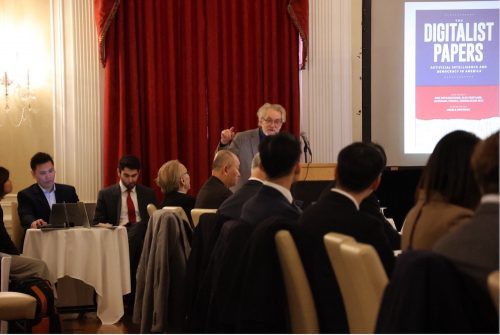Artificial intelligence-enabled health applications for diagnostic care are becoming widely available to consumers; some can even be accessed via smartphones. Google, for instance, recently announced its entry into this market with an AI-based tool that helps people identify skin, hair, and nail conditions. A major barrier to the adoption of these technologies, however, is that consumers tend to trust medical AI less than human health care providers. They believe that medical AI fails to cater to their unique needs and performs worse than comparable human providers, and they feel that they cannot hold AI accountable for mistakes in the same way they could a human.
This resistance to AI in the medical domain poses a challenge to policymakers who wish to improve health care and to companies selling innovative health services. Our research provides insights that could be used to overcome this resistance.
In a paper recently published in Nature Human Behaviour, we show that consumer adoption of medical AI has as much to do with their negative perceptions of AI care providers as with their unrealistically positive views of human care providers. Consumers are reluctant to rely on AI care providers because they do not believe they understand or objectively understand how AI makes medical decisions; they view its decision-making as a black box. Consumers are also reluctant to utilize medical AI because they erroneously believe they had better understand how humans make medical decisions.
The article was originally published at the Harvard Business Review.
The Boston Global Forum (BGF), in collaboration with the United Nations Centennial Initiative, released a major work entitled Remaking the World – Toward an Age of Global Enlightenment. More than twenty distinguished leaders, scholars, analysts, and thinkers put forth unprecedented approaches to the challenges before us. These include President of the European Commission Ursula von der Leyen, Governor Michael Dukakis, Father of Internet Vint Cerf, Former Secretary of Defense Ash Carter, Harvard University Professors Joseph Nye and Thomas Patterson, MIT Professors Nazli Choucri and Alex ‘Sandy’ Pentland, and European Parliament Member Eva Kaili. The BGF introduced core concepts shaping pathbreaking international initiatives, notably, the Social Contract for the AI Age, an AI International Accord, the Global Alliance for Digital Governance, the AI World Society (AIWS) Ecosystem, and AIWS City.










